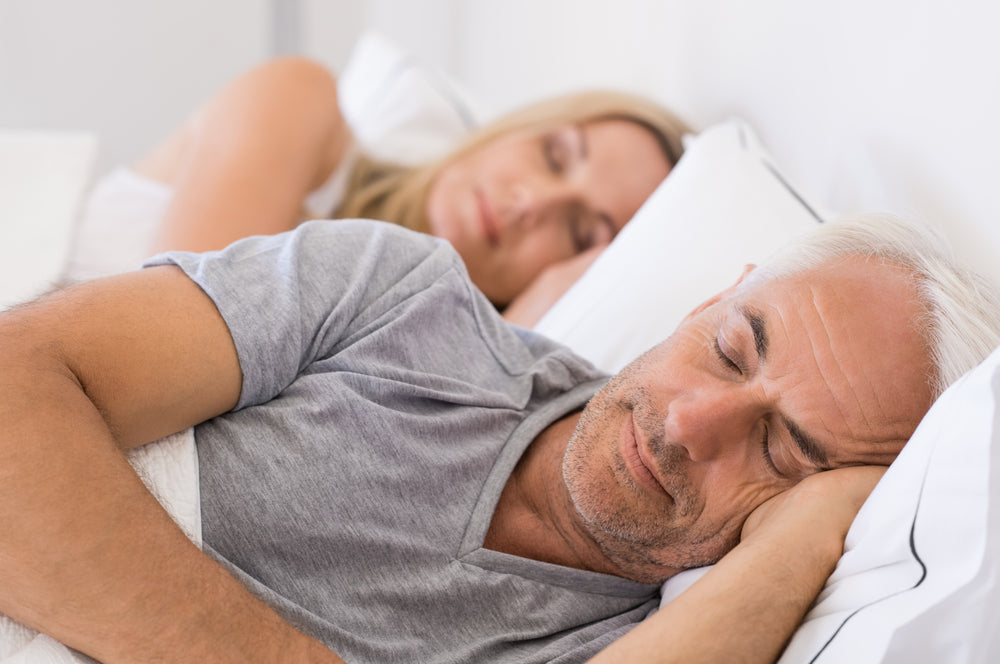Choosing to take the leap and get yourself tested for sleep apnea can be both overwhelming and stressful, but fear not. We have compiled a list of ways you can be completely prepared for your sleep apnea home test and ensure that you know exactly what you need to do before, during, and after your home sleep study.
If you are unfamiliar, home sleep studies are a great option for those who believe they are a likely sufferer of Obstructive Sleep Apnea (OSA), a condition where muscles and soft tissue can block the airway during sleep. We want to help you understand more about the home sleep test option and what to expect if you choose to do your sleep study from the comfort of home.
Ordering Your Home Sleep Study Kit:
Ordering your home sleep study is quite simple. You’ll reach an online ordering page where you can easily add a sleep study to your cart from your computer, tablet, phone, and most other internet-enabled devices, similar to online shopping.
Once you add the test, you will choose from a variety of shipping options and enter in your appropriate shipping information. Once complete, you will pay for the cost of the test and shipping with your credit or debit card information. Your sleep testing unit will then be sent to your provided address once check out and processing is complete.
The Day Before Your Home Sleep Study:
Don’t put off preparing for your sleep study until the actual night. It may actually help to pretend you are getting ready to take the test the night before. If you do this, then you can take the following day to seek any answers or clarification you may have prior to the actual recording.
Be sure that you have arrangements set up so that you can get an uninterrupted night of sleep. If you are a caregiver or have an infant/toddler who may frequently interrupt your sleep, it is best that you make arrangements for alternative care so you can ensure you get a good recording that can get you the answers you need about your potential sleep apnea.
The Day of Your Home Sleep Test:
If you prepared properly the day before, then the day of your at-home sleep study can be a relative breeze. There are a few ways you can ensure you get a good night of sleep results. First, avoid any kind of caffeine for at least 24 hours before your study. This will ensure you are able to fall asleep and stay asleep for the night. Second, avoid any napping during the day. Napping will interrupt your normal rhythms and potentially impact your nightly sleeping.
Third, make sure not to eat dinner too early or too late. Eating too early may make you hungry before bed whereas eating too late could make you feel bloated or uncomfortable. Neither are good for sleep. Lastly, try to relax and unwind before going to bed with the testing apparatus. We recommend a long, relaxing bath, some low lights, or listening to calming music.
The Night of Your Home Sleep Study:
When undergoing your home sleep test, it’s imperative that you stick to your normal bedtime routine. You shouldn’t behave any differently during your pre-bedtime routine than you would on any other night and try to get to bed and wake up around your usual times—which should constitute a full night’s sleep.
Once you are wearing the device properly, turn it on when you get into bed even if you don’t fall asleep right away. The best rule is to try to get at least 3 straight hours of uninterrupted sleep for more accurate results.
During Your Sleep Testing:
If you need to get up in the middle of the night for any reason (use the bathroom, let the dog out, get some water, etc.), please make sure to leave your device on and recording. Again, it is imperative that you wear the activated device all night regardless of what happens during that time. Once you wake up and get out of bed for the day, only then should you turn off the device and take it off to send it back for analysis.
Following all these rules should ensure that you get not only a wonderful night of sleep, but also accurate results on your home sleep study. Once you return your home sleep testing kit, your sleep data will be reviewed by a board-certified sleep physician who can then make a diagnosis. An ApneaMed patient care representative will contact you to discuss your results, and, if applicable, a treatment plan.
A sleep apnea diagnosis can be overwhelming, but home sleep studies allow you to take control of your health and get the equipment you need to start sleeping better sooner.

